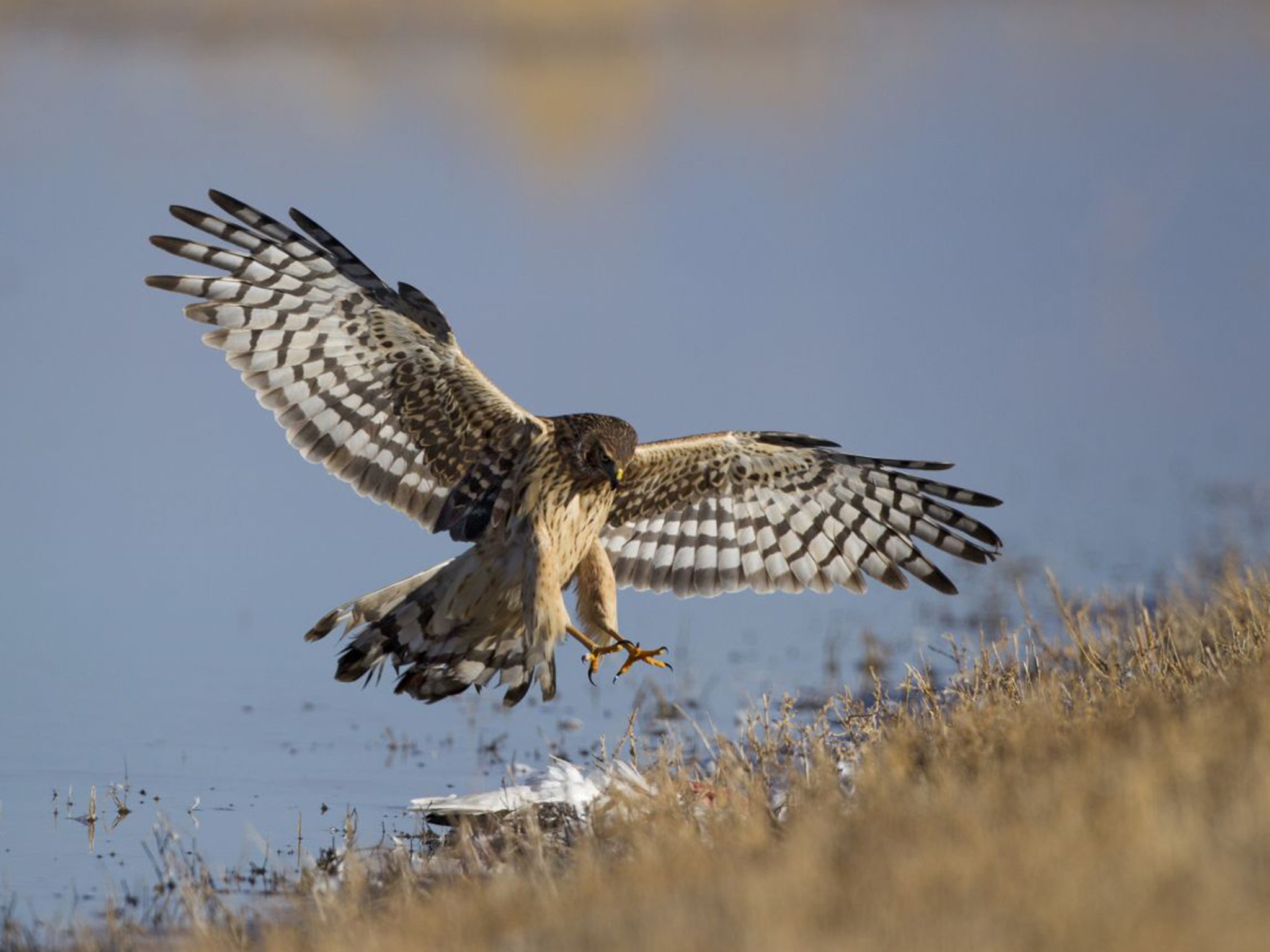Plight of Britain's hen harriers sparks one of the countryside's fiercest debates
Conservationists and the shooting lobby are at loggerheads. Could a country estate manager have the answer to the problem?

Two weeks ago, Jake Fiennes witnessed a rare sight: a male hen harrier flying across the country estate he manages in south Norfolk. “It was a beautiful sight,” says the brother of the actor Ralph Fiennes as he drives his Land Rover down a narrow track on the 5,000-acre Raveningham Estate. “I’ve seen all sorts of raptors here and 90 species of other bird. We have wild hares, of course. But a hen harrier – I was very lucky indeed.”
The tale of the hen harrier is a grim one. There is enough habitat in England and Wales to support 300 breeding pairs, but only three or four pairs remain.
The birds’ plight has triggered one of the countryside’s fiercest debates. Conservationists accuse gamekeepers on upland grouse moors (and elsewhere) of slaughtering the birds on sight to protect grouse chicks.
Raveningham doesn’t have a grouse moor, but Mr Fiennes is acutely aware of the controversy surrounding the raptors’ sharp decline. “The view that all country people are bloodthirsty killers is just wrong,” he says. “We want the same thing as the conservation lobby.”
Mr Fiennes may be estate manager, but he’s not a tweed-wearing apologist for the shooting lobby. Rather he’s a trailblazing conservationist who has spent his working life pursuing a maverick approach to land management. On his watch, Raveningham has been transformed from a spread of farms and woodland into a haven for wildlife composed of low-intensity farmland, biodiverse wetlands, rich coppices, streams and hedgerows thriving with life.
His reward has been accolades from the Game and Wildlife Trust, the Woodland Trust and Natural England. Take a drive across the estate, however, and it’s clear that the real payoff is a “rich harvest of biodiversity”.
On a late afternoon in spring, the estate is alive with animals, from swooping lapwings and red shanks in the wetland to fields full of hares. As night falls, barn owls cruise silently in the twilight. It feels like a nature reserve, but it isn’t. Raveningham is a working estate with arable and livestock farms, coppiced woodlands and even a small quarry.
Unlike most estate manger, Mr Fiennes readily admits that shooters need to learn to compromise over wildlife issues, and in some cases reduce the amount of wildlife they kill.
“In truth, conservationists and the shooting lobby really want the same thing,” says Mr Fiennes, who picks up a gun about half a dozen times a year. “And that’s to be good custodians of the part of the planet we find ourselves on for the time we find ourselves on it.”
The estate remains profitable despite the fact that Mr Fiennes has reduced the area under cultivation by 30 per cent in the past 10 years. He says his most important harvest comes in the form of a “conservation crop”, which includes a large hare population, one of Norfolk’s few populations of wild cornflower, a healthy number of endangered lapwings and a growing number of critically endangered grey partridges.
The slow and steady management style has baffled some of his neighbours, who politely grumble at his methods and bemoan the fact that there is shooting on the estate only 10 days a year. But his approach has earned him an invitation to appear as the voice of “shooting moderation” at a Tooth and Claw debate at next month’s Norwich Festival. The debate, which has already created a buzz in the conservation world, will feature him discussing the plight of the hen harrier alongside Mark Avery, the RSPB’s former director of conservation, as well as more combative members of the shooting lobby.
Mr Avery, who is campaigning for a ban on grouse shooting in Britain’s uplands, says: “I’ve heard good things about Jake and obviously we need compromise, but we can’t get away from the fact that in the uplands there is real conflict over the hen harrier. We know that 99 per cent of our hen harriers are missing, and we know they are illegally being killed on grouse moors by grouse shooters because they eat red grouse.”
For his part, Mr Fiennes wants to be a “voice of moderation”. He says: “The actions of the few cannot be allowed to tarnish the good work carried out by others.”
Join our commenting forum
Join thought-provoking conversations, follow other Independent readers and see their replies
Comments